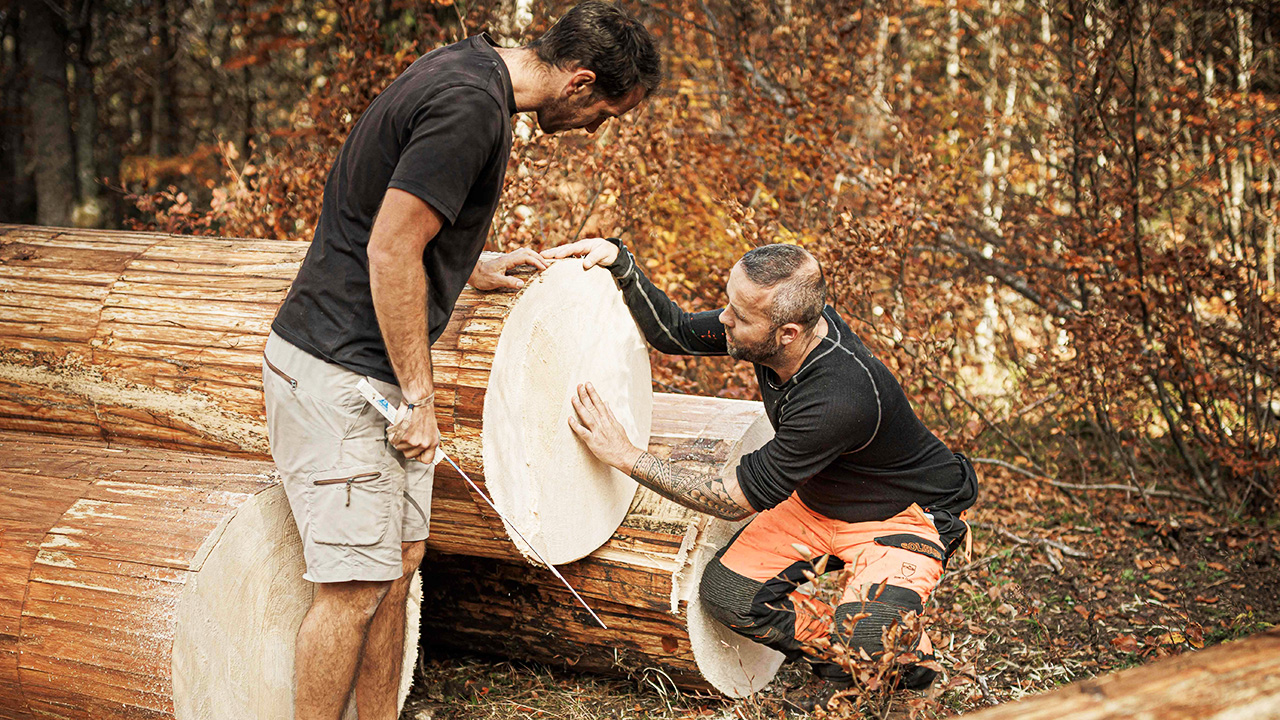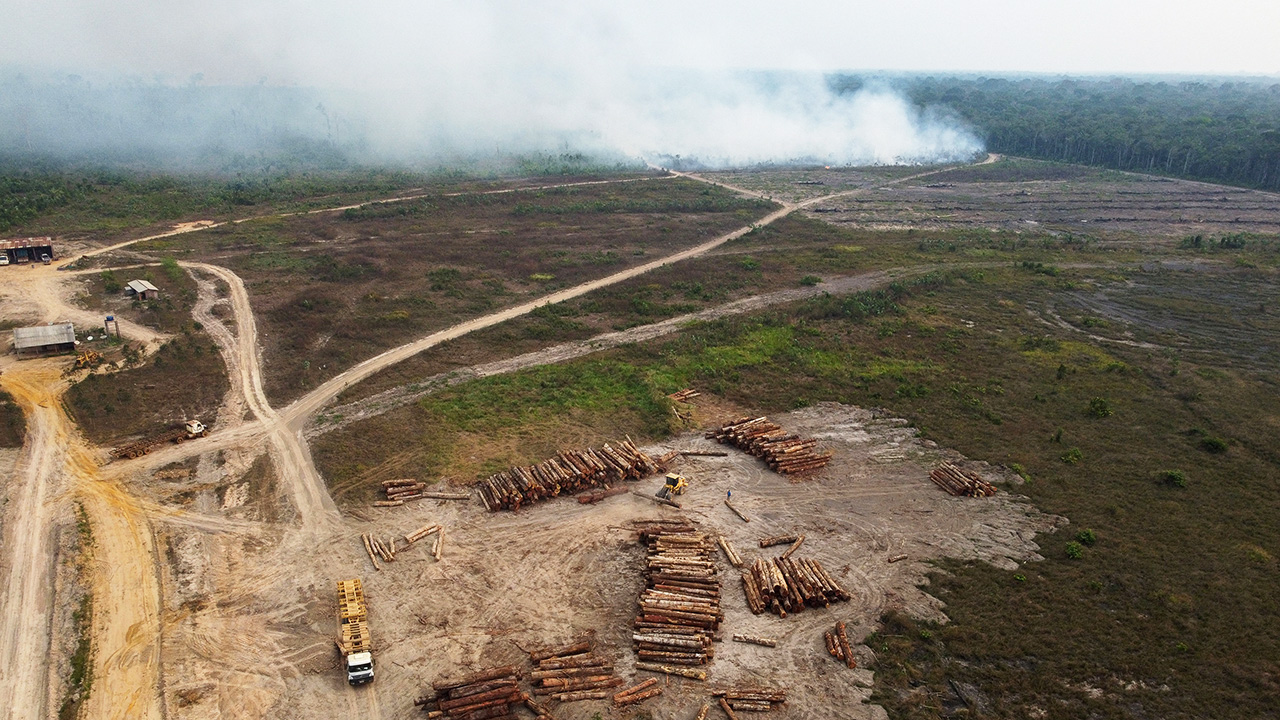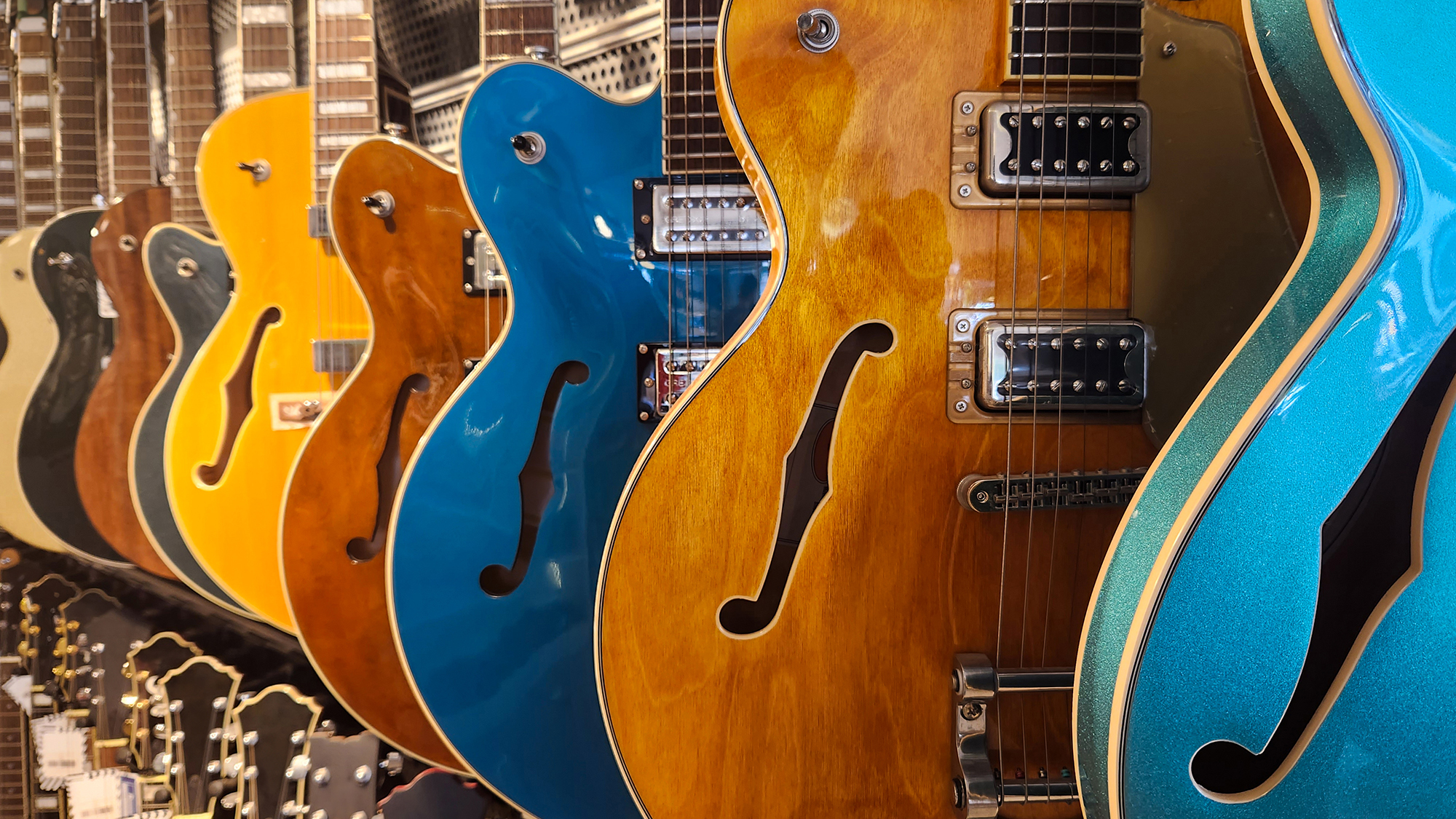“If you’re going to make instruments in 100 years, you better be growing that supply chain, not barely maintaining it”: When the guitar world’s most prized woods are endangered, how can we ensure the future of tone?
The hunt for the perfect instrument is increasingly focusing on the production process – but with 15 billion trees unsustainably deforested every year, and prized species becoming extinct, that process needs to change

All the latest guitar news, interviews, lessons, reviews, deals and more, direct to your inbox!
You are now subscribed
Your newsletter sign-up was successful
Developing the perfect guitar sound is a never-ending journey. From necks to pickups, guitarists dedicate hours to finding the ideal match. Increasingly, players are considering the production process as part of their journey.
Every guitar starts with its tonewood. Spruce, maple and cedar are among the 300 species instrument manufacturers desire due to their bright tones, versatility and exotic looks. For nearly 200 years the industry has used over 300 wood species from all over the world.
But mahogany, ebony and Indian rosewood come from areas rife with exploitation – many forests suffer from over-harvesting, making it harder to supply the wood needed by the lumber industry.
Clearcutting – also known as deforestation – is the removal of all trees from an area of land. The practice has been taking place for centuries but it’s become particularly pronounced in recent decades. Even in the enlightened time of 2024, it’s estimated that over 15 billion trees are clearcut every year. And that comes at a cost.
Many of the guitar industry’s preferred species are now extinct or endangered. And that’s only one by-product of wood sourcing. As a result of deforestation, collapsing ecosystems puts a growing number of animals on the endangered list. Without trees to maintain soil structure, soil runoffs increase waterway pollution, damaging more ecosystems.
The Environmental Defense Fund estimates deforestation has contributed over 8.1 billion tons of CO2 into Earth’s atmosphere in recent decades. CO2 accounts for roughly 80 percent of all greenhouse gasses, and so numbers are rising at alarming rates.
The picture can seem overwhelmingly bleak, but necessity is the mother of invention. The timber-sourcing and guitar-building industries are each playing their own roles in creating solutions.
All the latest guitar news, interviews, lessons, reviews, deals and more, direct to your inbox!
Thermal Wood Canada is a case in point. The tonal characteristics of young, sustainable cuts can be improved by the baking (or torrefying) process – but the corporation has removed the need for that stage by creating a new type of modified wood blanks.

“There are over 36 types of wood on the extinction list – way too many,” says TWC boss Bob Lennon. “Madagascar ebony, for example, which is vital for fingerboards. We thought, ‘How can we get the industry as a whole to see the value in building sustainably?’
“Then we addressed the need for an ebony substitute by creating Obsidian ebony – a wood crafted via thermal modification and monomer infusion. The desire to build sustainably meant we found a way to recoup and repurpose millions of wood scraps left on forest floors every year.”
To me, the most important part of the supply chain is the wood buyer
Mike Borne
Thermal modification? Monomer infusion? Not the sexiest marketing terms… but the process offers real benefits for luthiers, players and the planet itself. It recreates the tonal benefits of aged wood, and also makes the wood more resistant to changes in climate and humidity. Next, it creates a more exotic look that appeals to makers and buyers alike.
Companies can mass-produce vintage-sounding and great-looking guitars without waiting years for wood to age and be treated. Lennon says it’s a solution that makes sense in terms of sustainability and finances.

Sourcing alternative wood isn’t the only way to go. Addressing the damage done to forests, therefore replenishing the original supply chain, is equally essential.“To me, the most important part of the supply chain is the wood buyer,” says Mike Borne, one such operative, who’s worked with Fender, Gibson and Martin, among others.
“The wood buyer has the first and most direct connection to the forest. We put pressure and demand on supply companies by going through the jungles, finding wood, and securing the proper documentation to harvest and sell it.”
As the literal ‘boots on the ground’ of the guitar industry, he argues, the buyers have an essential role in ensuring other parties act responsibly. “If you’re going to make instruments 100 years from now, you better be working on growing that supply chain, not barely maintaining it – because the quality of the wood isn’t going to get better, and that’s essential to guitar tone.”
But buyers can’t do everything. With younger trees requiring years of management while forests aren’t being replenished to match the rate of consumption, Borne says lawmakers have a role to play too.

“Some governments pay for the use of the land to grow and harvest trees,” he says. “The land owners get paid, then the government pays to replant what’s been harvested – so that, 50 or 60 years from now, the next crop will be ready to harvest.”
This continual process helps to decrease the level of clearcutting, while also promoting viable jobs for local communities. And since lawmakers respond to the demand of voters, and businesses respond to the needs of customers, the power to increase the rate of change lies with the public.
Change is coming, then – and it’s we, the players, who can dictate the pace
There are green shoots on this front, too. Both Martin and Taylor are taking steps to support reforestation and rebuild communities in various countries where wood is harvested. Meanwhile, many of the larger electric guitar manufacturers have made the switch to sustainable alternatives.
We’re increasingly seeing sustainable programs offered by smaller builders, too – take Danish firm Baum’s Revival Collection, for example, which uses factory seconds as a chance to experiment with custom builds. Yamaha has launched its own Upcycling initiative, which turns scrap instrument offcuts into one-of-a-kind guitars.
Change is coming, then – and it’s we, the players, who can dictate the pace. If we want the instrument we love to live on, then clearly we need to ensure the forests live on, too.
Atlanta native Gabriella “Guitar Gabby” Logan is a Strategy Lawyer and proud Spelman College and Vermont Law School graduate. Her passion for perspective fueled her desire to establish TxLips Band, LLC., a global entity that triples as a TxLips Academy, TxLips Consulting Group, and an international female and gender-expansive rock collective. Logan believes it is vital for people to be well-rounded and strategic in creating careers based on passion and built off longevity. She is a contributing writer for Guitar World magazine, Governor of the Recording Academy Atlanta Chapter, and a Board Member of the Vermont Law School Alumni Association Board of Directors.

